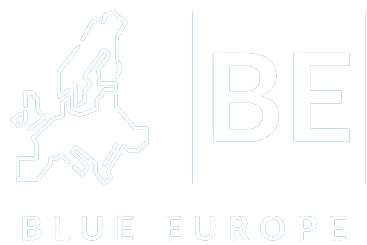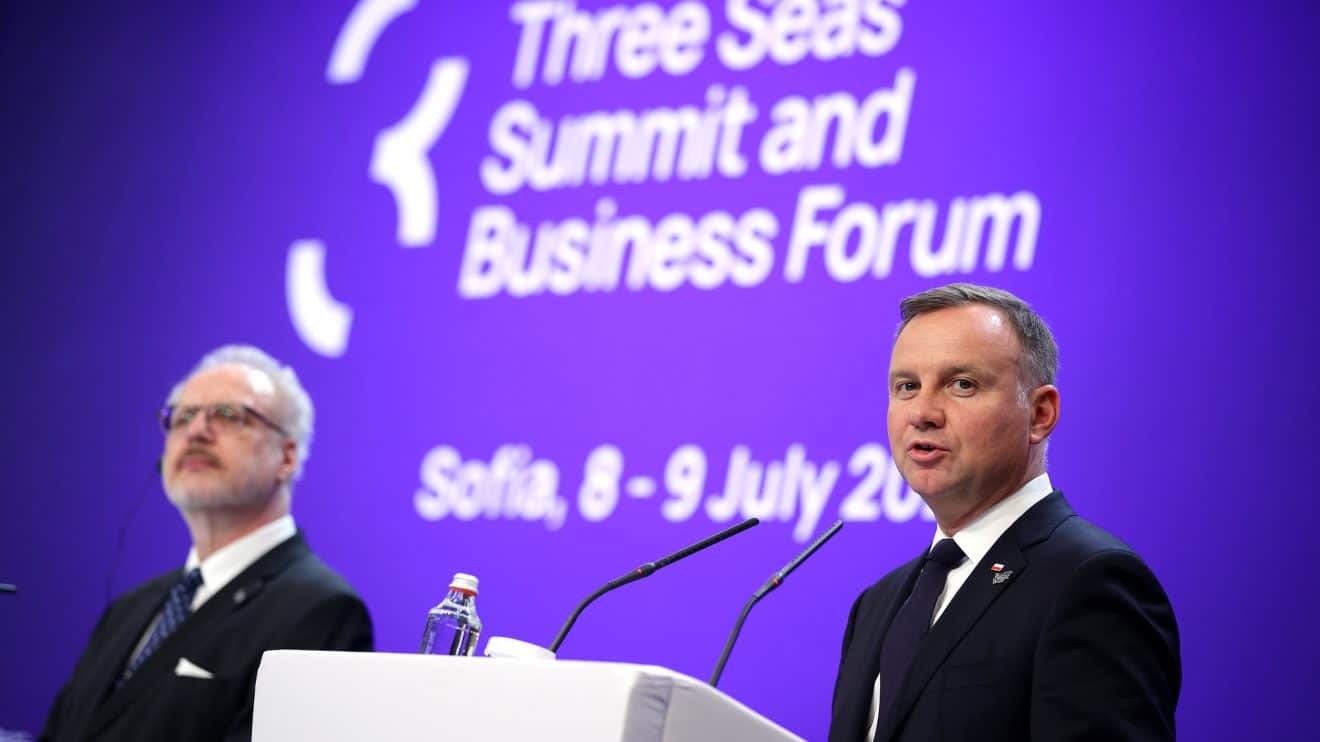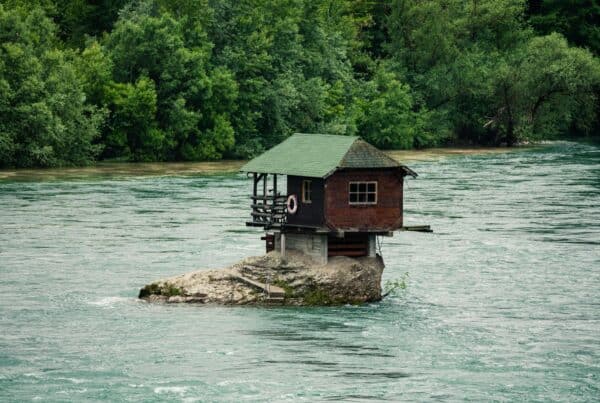Interview conducted by Jan Normann and Andrea Bogoni.
In January 2023, Blue Europe published an article entitled “Poland’s Role in the Intermarium Idea,” authored by Henrique Horta,[1] which discusses Poland’s role in the Intermarium concept, envisioning an integration of Central and Eastern European (CEE) countries between the Baltic, Black and Mediterranean Seas to counterbalance Russian and Western European influences. This idea, historically rooted in efforts by leaders like Józef Piłsudski, has evolved over time and gained renewed relevance due to modern security concerns. The Intermarium initiative seeks to foster regional cooperation and stability, positioning Poland as a central figure in this strategy to enhance collective defense and independence from larger powers.
From an international relations standpoint, this concept is crucial because it highlights Poland’s strategic efforts to create a regional coalition that could reshape the power dynamics in Europe, especially in response to Russian expansionism and European Union Integration challenges. The contemporary Intermarium concept can in fact enhance EU integration by fostering regional cooperation and solidarity among CEE countries. By focusing on shared interests such as security, infrastructure development, and energy independence, the Intermarium aligns with the EU’s broader goals. It promotes political stability and economic growth within the EU framework, rather than countering it. This regional initiative can serve as a model for deeper Eastern integration, providing new impulses for institutional, social, and economic reforms that resonate with the foundational principles of European unity.
Wanting to explore the topic in more depth and show further aspects of the subject, we decided to contact one of the experts on the Intermarium concept, Prof. Wojciech Gizicki (ORCID, ResearchGate). Wojciech is Professor at John Paul II Catholic University of Lublin and associate Dean of the Faculty of Social Sciences. Sociologist specialised in international security and Visegrad cooperation (V4), he is also author of numerous books and articles, giving many lectures and speeches in Poland and abroad. Moreover, he was a Polish representative in the expert group during the Czech presidency of the V4 (2016). Below questions and answers.
What historical factors led Poland to become the leader of the Intermarium?
In its genesis, the Intermarium project refers to Jozef Pilsudski’s concept of the Intermarium from the early 20th century. However, the contemporary dimension of the project is much more oriented toward viable geopolitical goals to be achieved. They are both political (which, unfortunately, for incomprehensible reasons, the intergovernmental discourse tries to avoid) and relate to the consolidation of Central Europe’s subjectivity, its position within NATO and the EU. Poland is the largest country in the region, both demographically and geographically. It has rich integration traditions from the period of the Union of Lublin, the First and Second Republics, among others.
What challenges does Poland face in fostering cohesion and cooperation among the Intermarium countries?
The challenge is certainly to convince the other Central European partners and especially the EU of the resourcefulness of this cooperation. The Intermarium is not in competition with the EU. It is meant to give new integration impulses within its framework, to propose institutional, social and economic reforms that directly relate to the origins of European integration proposed by the Founding Fathers. Poland and other countries in the region, especially the Czech Republic and Hungary, are no longer “new states” in an integrating Europe. They have centuries-old statehood and traditions. They became part of NATO in 1999. All of them, together with Slovakia, have created and are running a successful integration project within the V4.
Looking to the future, what is the projected impact of the Intermarium on Poland’s importance in European and global politics?
The influence of the Intermarium on Poland’s importance stems from the fact that the initiative was established at its inspiration (together with Croatia). Poland is seen as a leader in Central Europe. It has significant geopolitical importance, due to its location between Germany and Russia. This determines the importance of the Intermarium. This is particularly important in the context of Russia’s imperial plans, including the brutal war in Ukraine. In addition, Poland is a significant example of successful multidimensional development without dependence on Germany. The same is true, and can continue to be true, for the other countries in the region. The condition, however, is successful cooperation and “not being frightened” by the opportunities that the current time and their activities offer Central Europe.
How does Poland’s strategic position within the Intermarium affect its foreign policy and defense strategies?
The Intermarium has become a major area of Polish activity after 2015. An additional strengthening element is the favorability of the initiative from the US. This is especially evident in the context of the war in Ukraine. Poland is a key country in the context of helping war refugees and in the importance of the strategy of logistical assistance to the fighting Ukraine. It is important that such a direction of security and defense policy be continued regardless of possible political and electoral changes. This is a fundamental point of Poland’s raison d’état.
What are the main economic and political benefits for Poland within the Intermarium?
The Intermarium idea is beneficial for Poland because of its geopolitics and the possibility of cooperation of already 13 countries in the region (including Greece). It gives Poland real leverage in the EU and NATO (here more through the B9 project, among others). The demographic potential of Intermarium is well over 112 million people. The geographic area encompasses countries in a North-South alignment, which is particularly important in terms of breaking the stereotype based on the non-alternative nature of East-West cooperation, prevalent in Germany, among others.
Infrastructure projects, including the Via Carpatia and Rail Baltica roads, among others, are of key importance. In addition, it is imperative to develop cyber cooperation, including against propaganda, Russian disinformation in the region. An absolute priority is to strengthen energy cooperation, making Intermarium countries independent from Russia. The cultural proximity, tradition and identity of the region promotes proximity of societies, including tourism and learning about cultural and environmental values in the safe space of Central Europe.
References
- Horta, H. (January 2023), “Poland’s Role in the Intermarium Idea.” Blue Europe. Available at: https://www.blue-europe.eu/analysis-en/full-reports/polands-role-in-the-intermarium-idea/ ↑





